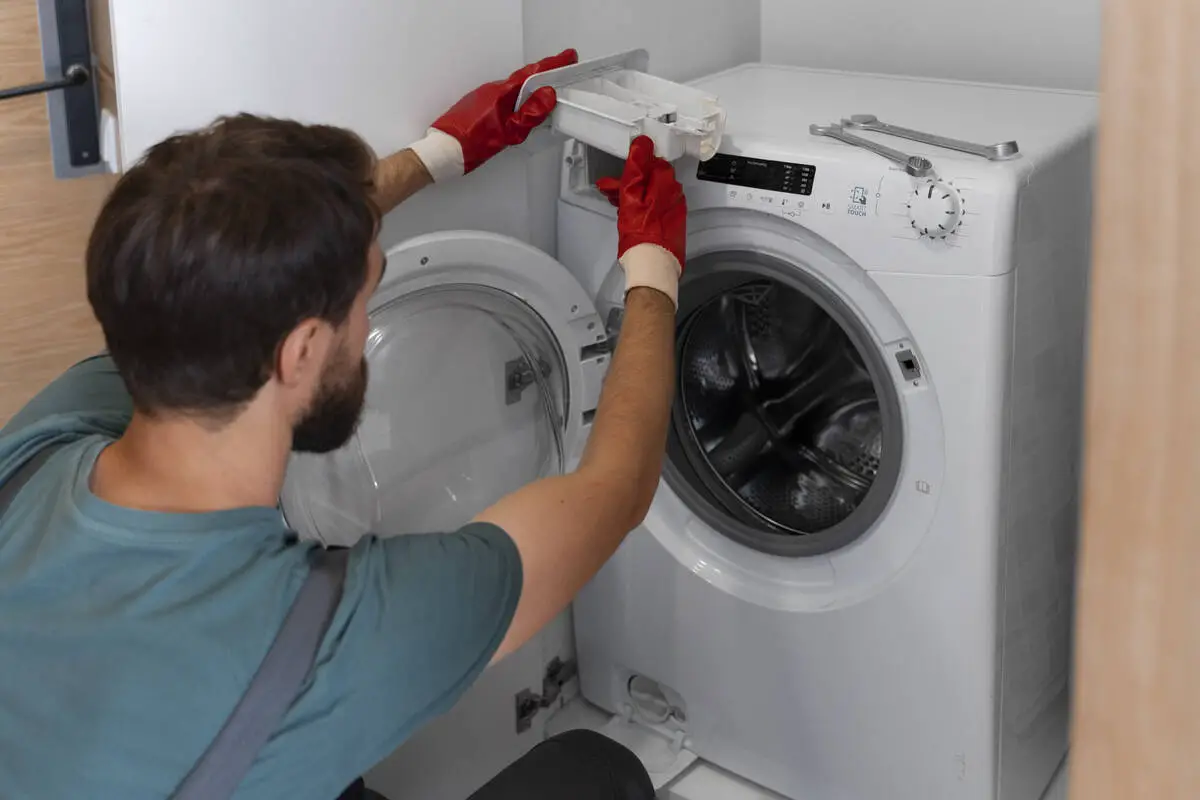Introduction
A functional washing machine is essential for keeping your household running smoothly. When it breaks down, it can disrupt your daily routine and create unnecessary stress. Whether your washing machine won’t start, won’t drain, or makes strange noises, this guide will provide you with step-by-step instructions to diagnose and fix common issues.
Safety First
Before diving into repairs, safety should be your top priority. Always unplug the washing machine to avoid electrical shocks. Wear protective gear, such as gloves and safety glasses, to protect yourself from sharp edges and debris.
Tools You Will Need
To repair a washing machine, you’ll need a basic toolkit that includes screwdrivers, pliers, and wrenches. Additionally, some specialty tools, like a multimeter for testing electrical connections, may be necessary depending on the problem.
Diagnosing the Problem
Identifying the issue is the first step in repairing your washing machine. Listen for strange noises, check for leaks, and pay attention to any error codes displayed on the machine. These indicators can help you pinpoint the problem.
Fixing Common Issues
Check the Power Source
Ensure that the washing machine is plugged in and that the outlet is working. You can test the outlet with another appliance or use a multimeter to check for voltage.
Inspect the Door Lock
Many washing machines won’t start if the door isn’t securely closed. Inspect the door lock mechanism and replace it if it’s faulty.
Washing Machine Won’t Drain
Clean the Drain Pump Filter
A clogged drain pump filter can prevent the machine from draining. Locate the filter, typically at the bottom front of the machine, and clean out any debris.
Check the Drain Hose
Ensure the drain hose is not kinked or clogged. Disconnect the hose and run water through it to clear any blockages.
The Washing Machine is Leaking
Inspect the Door Seal
A damaged door seal can cause leaks. Check for any tears or wear and replace the seal if necessary.
Tighten Hose Connections
Ensure all hose connections are secure. Tighten any loose connections to prevent water from escaping.
Washing Machine is Noisy
Balance the Load
An unbalanced load can cause the washing machine to make loud noises. Redistribute the clothes evenly inside the drum.
Inspect the Drum Bearings
Worn drum bearings can create noise. If you suspect the bearings are the issue, you may need to replace them, which can be a complex repair.
Replacing Parts
Removing the Old Seal
Open the door and locate the retaining band that holds the seal in place. Use pliers to remove the band and then pull out the old seal.
Installing the New Seal
Position the new seal in place and secure it with the retaining band. Ensure the seal is evenly seated around the door frame.
How to Replace the Drain Pump
Disconnecting the Old Pump
Unplug the washing machine and disconnect the drain pump's wiring and hoses. Remove any mounting screws and take out the old pump.
Installing the New Pump
Connect the new pump to the wiring and hoses, and secure it with the mounting screws. Reassemble the washing machine and test the pump by running a cycle.
Preventative Maintenance Tips
Regular maintenance can extend the life of your washing machine. Clean the machine regularly, balance loads properly, and use the right detergents to prevent build-up and damage.
When to Call a Professional
Some problems may be too complex for DIY repairs. If you’re unsure or if the repair seems beyond your capabilities, it’s best to call a professional appliance repair services. Consider the cost of repairs versus replacement when making your decision.
Conclusion | How to Repair a Washing Machine
Repairing a washing machine can seem daunting, but with the right tools and guidance, you can fix common issues yourself. Regular maintenance and proper use can help prevent problems and extend the life of your machine.
Frequently Asked Questions:
How Often Should I Clean My Washing Machine?
Cleaning your washing machine every three months can help prevent mold, mildew, and build-up.
What Detergents Are Best for Washing Machines?
Use detergents labeled for high-efficiency machines to prevent excess suds and residue.
How Can I Prevent My Washing Machine from Getting Moldy?
Leave the door open after each use to allow the drum to dry out, and clean the door seal regularly.





